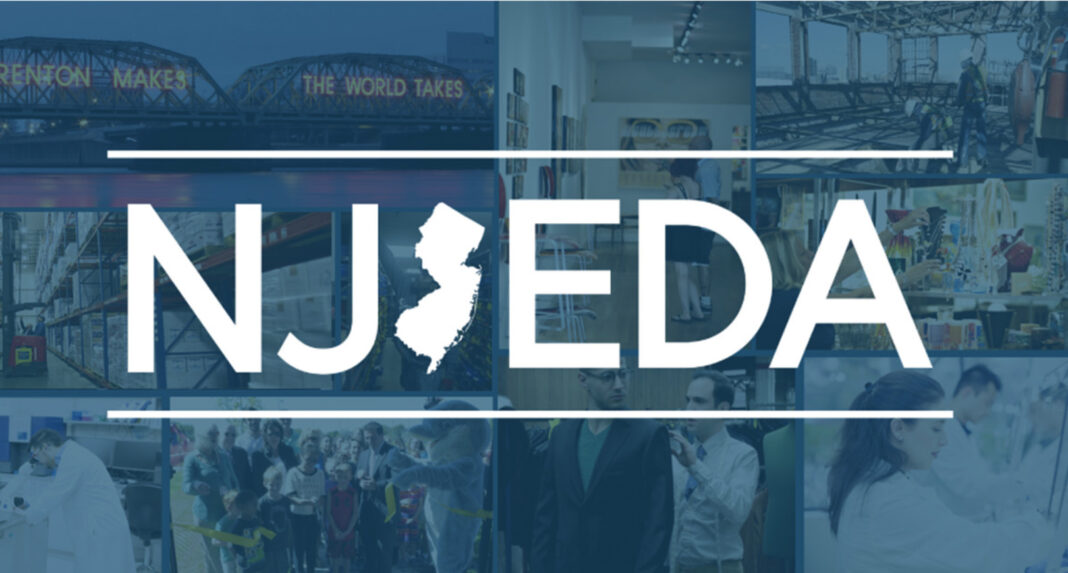The New Jersey Economic Development Authority (NJEDA) Board approved the creation of the Emerge program a new jobs-based tax credit program created under the Economic Recovery Act (ERA) of 2020. The Emerge program will drive economic development in New Jersey by making tax credits available to projects that invest private capital into the state and create good-paying jobs, with a focus on the State’s priority sectors.
As authorized by the ERA, the Board approved rules that will be effective immediately for a short-term duration, enabling the NJEDA to start accepting Emerge program applications in the coming weeks. Concurrently, the Board also approved publishing the rules for public comment prior to adopting longer-term final rules.
The complete rules for the Emerge program, including eligibility, award sizes, and other information, are available at https://www.njeda.com/emerge.
“Creating good jobs for New Jerseyans is central to my administration’s efforts to build a stronger, fairer New Jersey. It is even more important as we begin our recovery from the economic devastation of the COVID-19 pandemic,” said Governor Phil Murphy. “The Emerge program is a well-crafted, targeted tax incentive program that will drive job creation and equitable economic growth throughout New Jersey.”
“Supporting projects that bring good jobs to New Jersey is crucial to recovering from the COVID-19 pandemic and achieving Governor Murphy’s vision for a stronger, fairer New Jersey,” said NJEDA Chief Executive Officer Tim Sullivan. “The Emerge program rules approved today will open the door to exciting new economic development projects that will drive growth in communities across New Jersey while also remaining true to our commitments to equity, transparency, and accountability. This is an important step forward that will set New Jersey on the path to long-term, sustainable, and fair economic success.”
The Emerge program, which was discussed during Greater Trenton’s Capital City Economic Outlook Webinar las month, is part of the suite of programs created under the ERA to address the ongoing economic impacts of the COVID-19 pandemic and build a stronger, fairer New Jersey economy. The Board action taken today approved special adoption rules for the Emerge program, which will go into effect immediately upon filing with the Office of Administrative Law and will remain in effect for 180 days. During this time, the NJEDA will propose the same rules as long-term rules and undertake the required 60-day public comment process. This dual track approach, authorized by the ERA, will allow the Authority to begin accepting applications in the coming weeks while simultaneously fulfilling the public engagement requirements of the Administrative Procedures Act.
In line with the Murphy Administration’s Executive Order 63 and the NJEDA’s commitment to transparency and accountability, several weeks ago, in anticipation of today’s vote, the NJEDA publicly posted a draft copy of the Emerge program proposed rules and actively sought public feedback. This feedback process included three public listening sessions, an opportunity to submit written overall programmatic comments, and a channel to submit detailed feedback on the proposed rules.
The complete Emerge program rules approved today are available at https://www.njeda.com/emerge.
Base tax credits will range from $500 to $4,000 per job, per year, depending on location and other aspects of the project. Bonuses are also available based on project location, industry, and alignment with other policy objectives. These bonuses can increase annual per-job credits to a maximum of $8,000 per job. Projects with significant numbers of retained jobs (either 500 or 1,000 jobs depending on the project’s location) can receive tax credits for retained jobs; however, the ERA sets the amount of tax credits for each retained job at half the amount that would be awarded for equivalent new jobs. Jobs that are covered by a labor harmony agreement are eligible for an additional $1,000 bonus over the capped amounts.
To be eligible for tax credits under the Emerge program, projects must create at least 35 new, full-time jobs. This job creation requirement is lower if a business is primarily engaged in a targeted industry or if a business meets the definition of a “small business” in the program rules. Additionally, at least 80 percent of incented employees’ work time must be spent in New Jersey, and the business must commit to stay in the incented location for at least 1.5 times the duration of the tax credit period. Projects may make an equivalent donation to a local Recovery Infrastructure Fund in place of investing in their project’s facility. Some requirements are relaxed for small businesses.
All projects that receive tax credits under the Emerge program must meet minimum environmental standards, meet prevailing wage obligations for all construction workers and building service workers, and provide health care for employees. Projects that have a total cost of $10 million or more are also required to enter into a Community Benefits Agreement with the NJEDA and the municipality or county in which the project is located. These agreements will create a Community Advisory Committee to monitor compliance with the respective agreement.
To ensure a strong return on investment for New Jersey taxpayers, projects that receive tax credits under the Emerge program must yield a minimum net positive economic benefit to the state of 200 to 400 percent depending on project location, and awards will be limited to the amount the NJEDA determines is necessary to induce the project to locate in New Jersey. The NJEDA will also review detailed financial information about the project to verify the award of tax credits is a “material factor” in the decision to create or retain jobs in New Jersey.
In addition to the Emerge program, the ERA creates a suite of programs that includes tax credits to incentivize job creation, new construction, and revitalization of brownfields and historic properties; financial resources for small businesses; support for new supermarkets and healthy food retailers in food desert communities; new funding opportunities for early-stage companies in New Jersey; and support for the growing film and digital media industry.
More information about these programs is available at https://njeda.com/economicrecoveryact.





